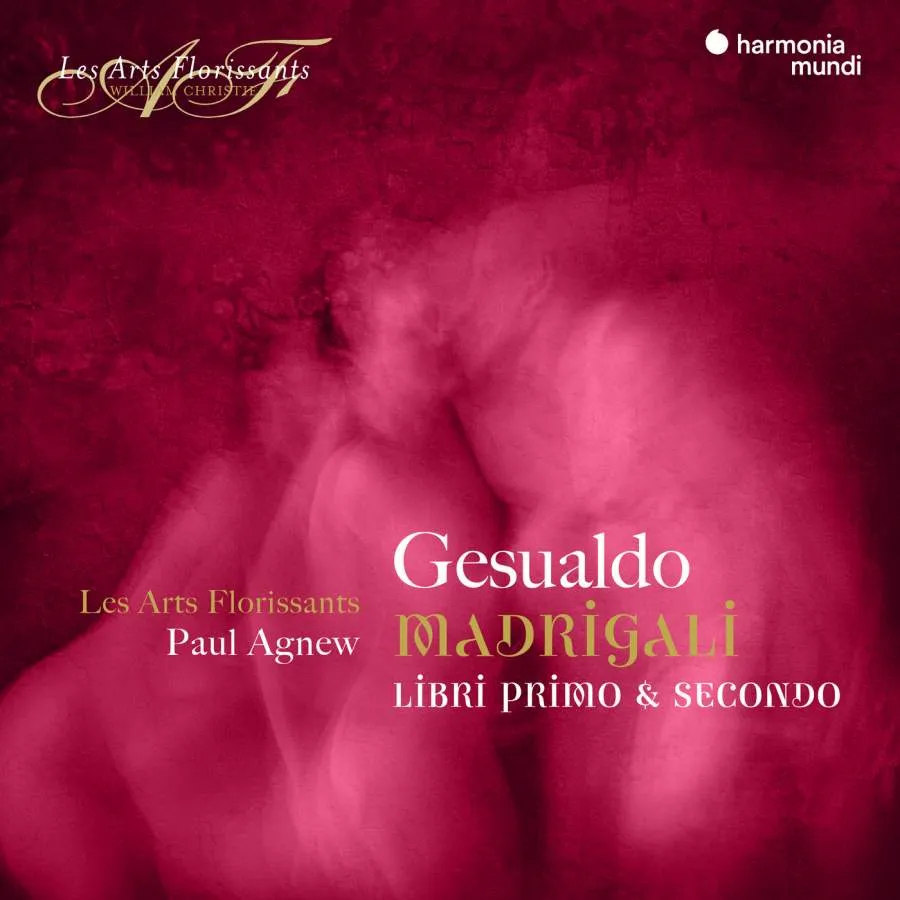
Gesualdo Madrigals – Books I and II: Baci soavi e cari; Madonna io ben vorrei; Com’esser può ch’io viva se m’uccidi; Gelo ha Madonna il seno; Mentre Madonna il lasso fianco posa; Se da sì nobil mano; Sì gioioso mi fanno i dolor miei; O dolce mio martire; Tirsi morir volea; Mentre, mia stella, miri; Questi leggiadri odorosetti fiori, etc Les Arts Florissants/Paul Agnew Harmonia Mundi HAF 8905307.08 81:43 mins (2 discs)
Usually recordings of Gesualdo’s madrigals concentrate on the later books where the harmonies get truly weird and opportunity opens up to link the music to the composer’s tortured soul (he famously murdered his wife). This by contrast is a welcome attempt to record the early books and glimpse for once the basis of Gesualdo’s style in the basic skills common to most madrigal writers.
Paul Agnew’s group comprises a mix of female and male voices singing just one to a part. This spare texture helps the clarity of line and, in a work such as ‘Bella Angioletta’ (Book I), fosters coordinated phrasing and dramatic drive. The singers also manage nicely the dance rhythms in ‘Danza le ninfe’ (Book I) and in ‘All’apparir di quella luci’ (Book II). Mostly these performances are quite fast. ‘Sento che nel partire’ (Book II) for example is moderately chromatic and can drift aimlessly when performed slowly – as it does slightly on the Naxos complete Gesualdo madrigals, and catastrophically on the Quinto Vocale Italiano complete recording on Newton Classics. The Arts Florissants group is framed by a distinct soprano at the top and sonorous bass – but they are not always centred enough on the pitch to make the best of this music, either harmonically or in terms of agility (as in ‘Gelo ha Madonna’ from Book I). Some of the pieces have been transposed to make the singers more comfortable, and this has produced some pleasingly controlled, widely ranging dynamic contrasts (‘Mentre mia stella’, Book I).
Anthony Pryer